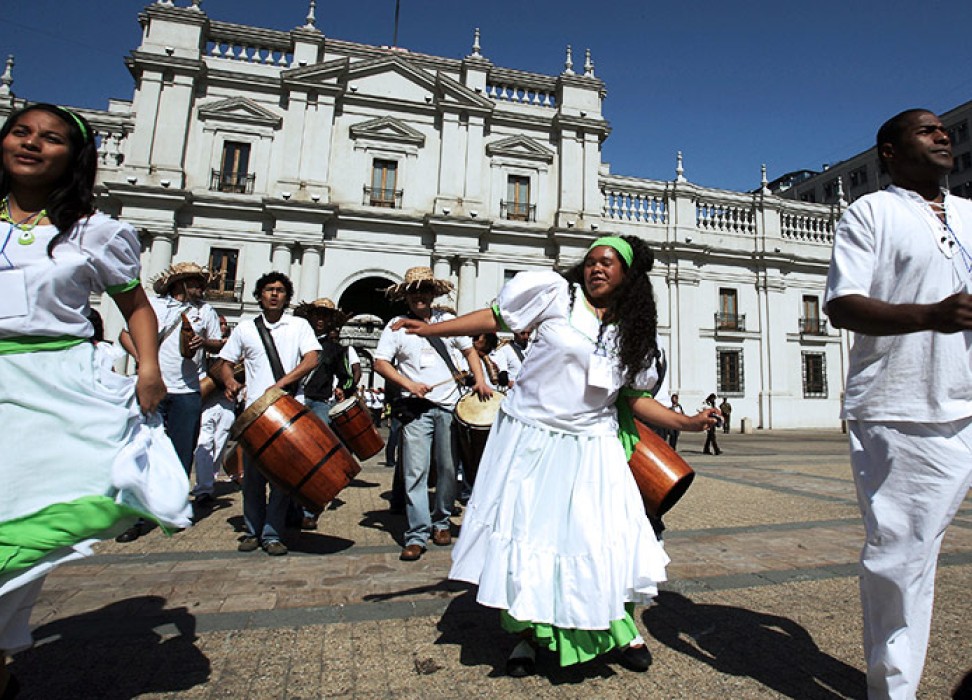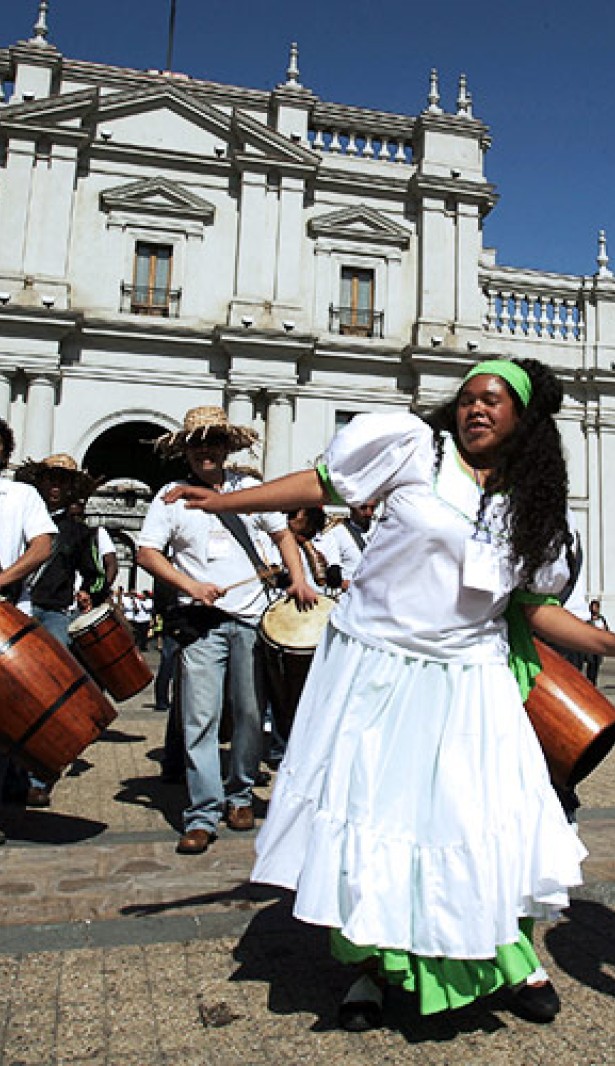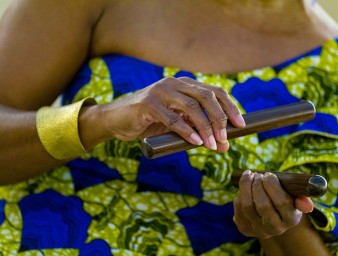Afro-Chileans' recognition: from denial to pride
03 May 2019

"When I was a girl, I straightened my hair every day," said Azeneth Báez, reminiscing her young years in Arica, her hometown in northern Chile. "Back then, we did not have these hair straighteners that teens have now, so I used an old clothes iron. I would have done anything to stop the bullying I faced."
The more she tried to straighten her hair, the curlier it got. The same happened with her afro descendant identity: no one could stop it from flourishing.
Like Azeneth Báez, other people and families around Azapa Valley secretly had unique ceremonies, stories and traditions. As afrodescendants, hey all were united by a common origin.
"We started looking for each other and organizing as a movement to demand our rights," said Cristian Báez who, with Azeneth, leads the NGO Lumbanga.
They faced scepticism and questionings, but they were decided to take their cultural resistance to the next level.
Turning shaming into activism
Lumbanga and Oro Negro (Spanish for "Black gold") are the most prominent Afro-Chilean NGOs. They have worked closely to advance the rights of Chilean afro descendants.
But first, they had to become visible.
They recalled countless trips to Chile’s capital Santiago – over 2,000 km away from home, meetings with authorities, street rallies and failed negotiation processes. "Some told us we do not exist. Others treated us like foreigners. It was hard for many to see us as fellow citizens", said Marta Salgado, historical leader of Oro Negro.
In school, Arica-born lawmaker Luis Rocafull was taught that there were no black Chileans. "We kept honouring our European-looking founding fathers, while ignoring the role and contributions to our history of indigenous and afro communities," he said. "Centuries ago, people from Africa were brought to our land against their will, and were crucial for the construction of what we are now as a region."
Rocafull witnessed the struggle of the Afro-Chilean community and decided to support their cause. He sponsored a draft bill to legally recognise Afro-Chileans as a tribal people, honouring their culture and traditions. After a long way through Congress, the bill was signed into law on 16 April 2019.
"We celebrate the adoption of this law, which also acknowledges the struggle of the Afro-Chilean activists to make it possible", said Birgit Gerstenberg, UN Human Rights Representative for South America. She explained its special relevance within the International Decade for People of African Descent (2015-2024), which encourages the adoption of concrete measures to support this population group, as they often suffer from multiple, aggravated or intersecting discrimination.
"This law is a milestone in terms of recognition - one of the pillars of the Decade, and lays the foundations to advance justice and development for all afro descendants in Chile," Gerstenberg added. We hope other countries in the region can make similar progress, and our Office is ready to support them in such efforts."
As human rights defenders, Marta, Cristian and Azeneth agree on the important role played by UN Human Rights South America in this process. "UN Human Rights has been a strategic partner within the framework of the Decade, in our efforts to make authorities understand and comply with their international obligations related to non-discrimination", Cristian said.
Concerned by the global context, the activists underscore that human rights are crucial for society as a whole. "This improvement will not only benefit Afro-Chileans; this is yet another contribution from our people to this multicultural country. And as Afro-Chileans, we have a special role in fighting any form of racism against brothers and sisters of African descent who come from other countries in their quest for a better future", he added.
In these happy days, all three think of their ancestors. They feel they inherited from them their pride, persistence and strength. "I know they would be very proud of this accomplishment, of the fact that we never gave up," Marta said.
"I stopped straightening my hair a long time ago," Azeneth added, with a smile. "This hair is a reminder of the proud people I come from, and now I love showing off my curls."
3 May 2019




